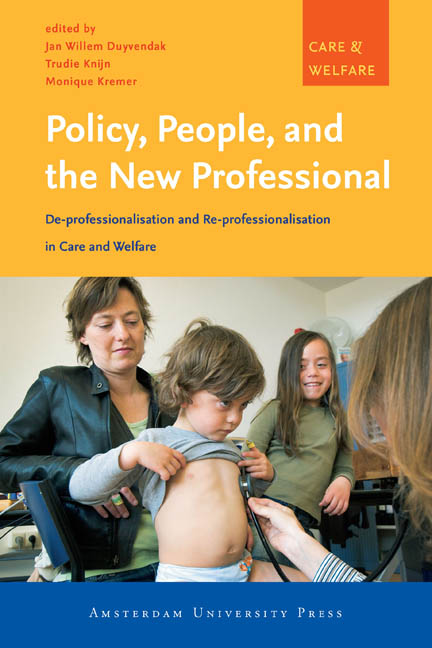 Policy, People, and the New Professional
Policy, People, and the New Professional 4 - Societal Neurosis in Health Care
Published online by Cambridge University Press: 23 January 2021
Summary
In 1994, Michael Power, a chartered accountant and lecturer in accounting and finance at the London School of Economics, published an intriguing essay, entitled The Audit Explosion. Power argued that the growing multitude of audit procedures had changed the nature of service delivery. People and organisations that were consistently being audited – such as hospitals, schools, water companies, laboratories, and various industries – start thinking differently about their own activities; they start looking at their work from an auditor's point of view. They focus on the measurable and quantifiable aspects of their work. Auditors generally do not see what is going on in daily practice, they do not sit in the class room, do not visit hospital wards, and do not read master theses written by students. Instead they evaluate the organisation's plans, programs, and evaluations; they tend to monitor systems of control, they look at the paper world created by the organisation for auditing purposes.
Auditing, according to Power, has developed into ‘policing of policing’. An organisation that wants to survive an audit has to invest in reporting, monitoring, and policing, rather than in improving performance. Unfortunately, the audit explosion has not led to more trust in service delivery. Instead, there seems to be a ‘regress of mistrust’. If those engaged in service delivery cannot be trusted, why should one trust the experts, managers, and accountants involved in policing them? Ultimately “the performances of auditors and inspectors will themselves be subjected to audit” (Power 1994: 13). This regress of mistrust may have something to do with the fact that the audit explosion has brought about “a shift from professions the public trusts more – such as doctors, police and teachers, to a profession the public trusts less (the accountants) at the instigation of a profession the public trusts least (the politicians)”. (Power 1994: 35).
Onora O’Neill has made similar observations and complaints in her BBC lectures on trust (O’Neill 2002). Similar observations were also made by the British political philosopher Grahame Lock in an essay about the demise of the Netherlands. In Locke's phraseology the quest for ever more audits, control, and accountability has turned into some sort of disease, that can be called societal neurosis or hyper-rationality.
- Type
- Chapter
- Information
- Policy, People, and the New ProfessionalDe-professionalisation and Re-professionalisation in Care and Welfare, pp. 48 - 63Publisher: Amsterdam University PressPrint publication year: 2006


